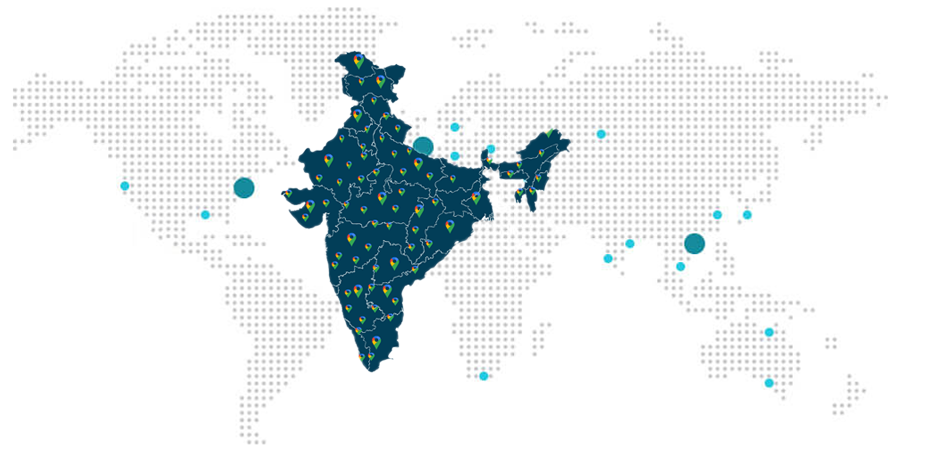Income Tax calculator
Categories
Income Tax Computation
For computing the tax amount which a taxpayer needs to pay, he/she require understand following things:
- To pay tax in a country such as India who is liable?
- How to calculate Gross Income Taxable?
- Which types of income are not components of Gross Taxable Income?
- From the Gross Taxable Income what types of deductions are permitted?
- What are the taxes rates and limits of exemption on the net taxable income?
Who is Liable to Pay Taxes in India?
In the India an artificial body, a group of individual or individuals such as resident Indians are liable to pay taxes. To pay the taxes the categories liable are given below.
How is Gross Taxable Income Calculated?
- Any income deemed, accrued, received to be accrued or received by an Indian resident, whether abroad or in India, in the previous year is liable to tax in the India. Non-residents who deemed, accrued, received to accrue or received income in the country such as India are liable to pay tax according to the Indian income tax act.
- According to the income tax act, the earned income is categorized as per the heads given below:
- Pension of family subject to Rs. 15,000 deduction or one-third deduction, whichever is less.
- Income from dividend
- Interest on securities or fixed deposits
- Income from other sources: Any income not chargeable to tax and earned by assesse under any income head is liable to tax as “income from sources other.”
- Income on Capital Gains: Under “Income on Capital Gains” head, any profit earned from sale or transfer of any asset capital is chargeable to tax. The capital assets are any type of art work, jewellery, securities and shares etc. Under this head, earned income is divided into long term capital gain and short-term capital gain. The earned income is based on the duration for which the assesse held the capital assets.
- That profit which you get from short term capital asset sale is known as short term capital gain. The assesse held the short-term capital gain for not more than three years. That profit which you earned after long term capital asset sale is called as long-term capital gain.
- In specific assets case such as shares, the period of holding is decreased to 1 year for the long-term capital asset.
- Income from Profits and Gains of Profession or Business: During the previous year, profits and gains of any profession or business which an assesse carried out is liable to tax under the head.
- Income from House Property: Tax is chargeable on the annual property value which the owner is assesse under the “House Property” head. Self-occupied property is not included in it. In some properties cases, the actual rent amount expected reasonably to be received or received is chargeable to tax under the section 24, subject to few deductions. Read More: Complete Guide on Income from House Property
- The section 24 permits the assesse for claiming the deductions up to 30% extent of rent received or annual value. The interest amount which is paid on borrowed loan for buying the property is permitted as around Rs. 2,00,000 deductions.
- Income from Salary: Income under the salary head also includes any salary amount which is due for the employee whether not paid or paid. According to the income tax act, section 17, the salary is defined as an amount which is received as profits in lieu of salary, perquisites and salary.
- Gross Total Income = Income from house property + income from salary + income from other sources + income from capital gains + income from business/Profession.
Which incomes are not components of Gross Taxable Income?
Income Tax Deductions
Section 80C: Income Tax Deduction under Section 80C Limit in India
This section offers deduction for the assesse contribution for the following:
- Registration fees or stamp duty paid for house property transfer
- Tuition fees payment to any university, college or the school
- Repayment of payment for a housing loan principle portion
- Public provident fund and life insurance policies payment
- Under the section 80C, the maximum deduction amount claimed is Rs. 1,50,000/- capped.
Section 80D: Income Tax Deduction for Medical Insurance & Health Checkups
This section signifies payments deduction for payment of premium for the policies of health insurance. The HUFs and individuals get the deductions. The deductions amount accepted is given below:
Section 80DD: Income Tax Deduction for Disabled Person Medical Treatment
An expense incurred by an HUF or the individual for the disable person maintenance or for the medical treatment is permitted as a deduction up to Rs. 75,000/-.
Section 80DDB: Income Tax Deduction for Specified Diseases
Any expenditure amount incurred for certain diseases, medical treatment of a person or his or her dependent is permitted as a deduction for a capped amount up to Rs. 40,000/-.
Section 80G: Income Tax Deductions for Donations
This section offers contribution of deductions which are made to those institutes which are charitable. The deduction amount which is claimed is percent of the paid amount to specific funds under the National Defense Fund or Prime Minister National Relief Fund. Half of the paid amount is permitted as deductions if the payments made to various charitable institutes.
Income Tax Calculator - Calculate your Income Tax Online
You can easily calculate your taxes online for AY 2018-19, & 2019-20 by visiting Income Tax Department’s Income Tax Calculator














